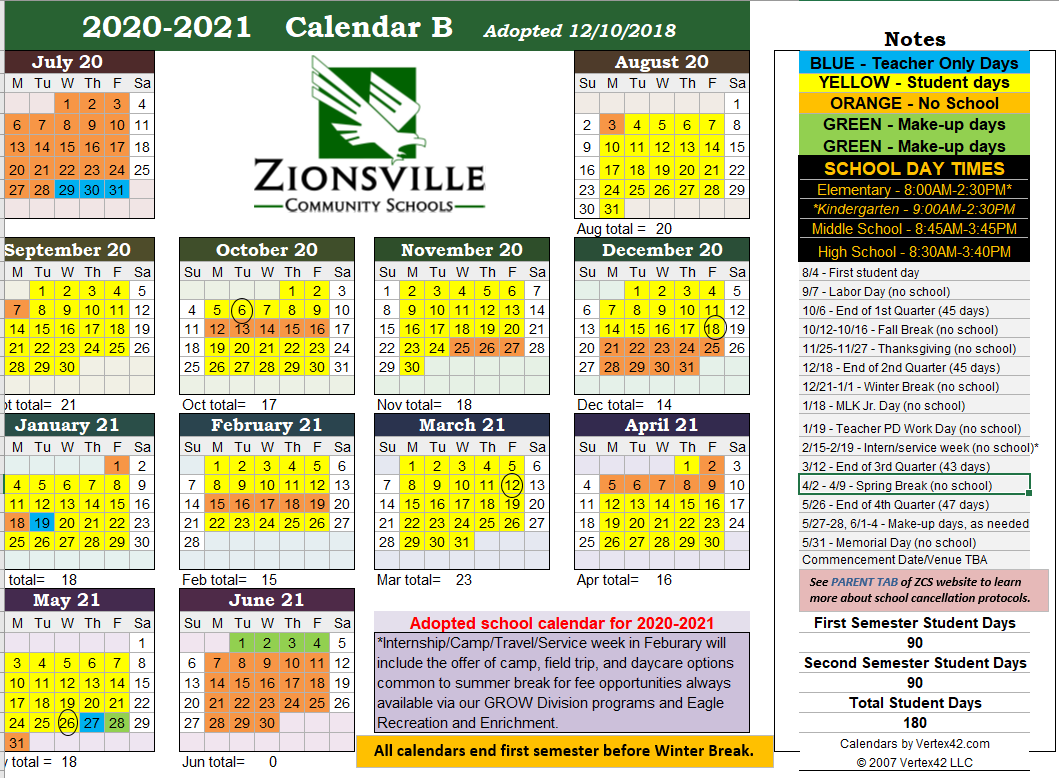ZCS Board Meeting
December 10, 2018
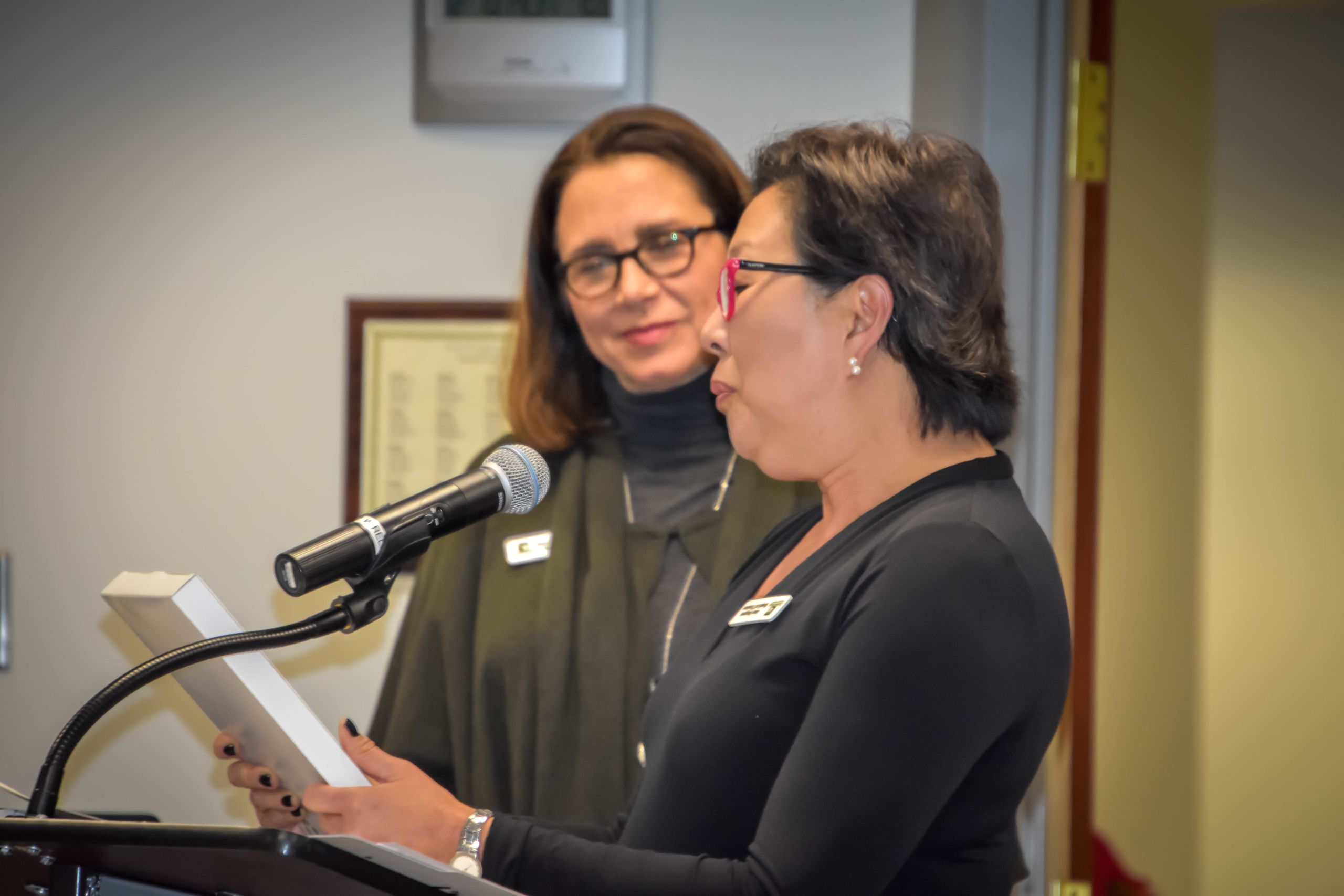
Enrollment growth drives changes; farewell to retiring board members; calendar template adopted for 2020-2023 school years
Nearly 7800 square feet of classroom space will be returned to instructional uses next August in order to help accommodate ZCS’s ongoing enrollment growth. On Monday, Board members approved a consolidated bid package to construct a Student and Employee Services building on the property adjacent to the ESC at 700 Mulberry Street. To be constructed with funds on hand from the former Dow Property collaboration with the Town of Zionsville, the employee health clinic now at PVE, and offices for GROW and food services now at ZWMS, will be housed in the residential scale building just east of the district’s central office on the main campus.
Board member Debbie Ungar asked about the employee clinic’s savings to ZCS across the many years it has been in operation. CFO Mike Shafer, Chief Operations Officer Rebecca Coffman, and Superintendent Scott Robison shared many ways that the district’s self-insured health trust has continued to beat the state’s expectations for such plans in large measure because of the generic prescription formulary, uptick in wellness (sickness prevention) consultations, and huge reduction in emergency room visits, to name a few. According to construction management estimates, the cost to construct the instructional spaces being put on line by this action would be greater than the cost to construct the new building.
Bids for the health and student services center were co-mingled with a bid to demolish the liability-heavy old Union Elementary School on State Road 32. Old Union Elementary was used for many years to store equipment and supplies for the district, but the facility is beyond reasonable costs to remodel, and it has become a vandalism nuisance that has been concerning to the school board and local law enforcement.
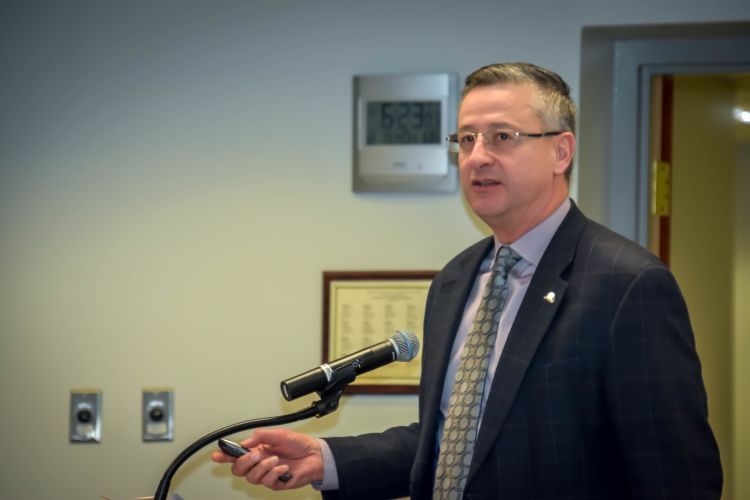
Victor Landfair is with Skillman Corporation, the district’s construction management consulting firm
Victor Landfair is with Skillman Corporation, the district’s construction management consulting firm
Retiring school Board members and past presidents Shari Richey (2010-2018) and Jim Longest (2006-2018) were recognized for their many years of service to the Zionsville Community Schools. Board President Jane Burgess presented a plaque and offered thoughts of gratitude to her departing Board colleagues. Michael Coussens (Union Township) and Michael Berg (Eagle Township), both elected in November, will replace Richey and Longest, respectively, in early January. Jim Longest, President of Beam Longest and Neff Engineers, began his journey as a board member in 2006, bringing with him professional knowledge and strong relationships with ZCS’s key partners, the local municipalities. Mr. Longest was instrumental in ZCS’s collaboration with the Town of Zionsville to acquire and develop the Dow property for economic development and assessed valuation growth. Mr. Longest also supplied consultation about many technical and facilities challenges during his 12.5 years in office, among other things.
Board Member Shari Richey, CPA, Partner @ Ernst & Young (ret.), was also recognized for her years of service to Zionsville Community Schools. Mrs. Richey’s work began in 2007 before she was elected to the board when she led the Superintendent’s Cost Cut Advisory Committee. This group advised the superintendent, CFO, and Board of Trustees about efficiencies and cost cuts designed to lessen the burden of huge cuts in funds due to new legislation coming on line in 2008.
Mrs. Richey was elected to the Board of Trustees in 2010, and she has been a key participant in our strategic debt management and refunding to establish and sustain a lower school tax rate. Mrs. Richey has supplied strong assistance in our quest to continue accommodating enrollment growth while remaining tax rate neutral. Mrs. Burgess said that Mrs. Richey has brought a sense of calm to the board and has always exuded grace under pressure as she represented Zionsville Community Schools and the entire community well. She described Mrs. Richey as a consensus builder and thanked her for her ever-present support of our fine local public schools.
When asked after the meeting about the retiring Board leaders, Superintendent Scott Robison offered, “This is bittersweet for ZCS. While we look back with gratitude and respect for the time and generosity of these fine board members’ service, the loss of institutional knowledge is undeniable. Fortunately, like the public servants they will replace, board members-elect Coussens and Berg are experienced professional people who will bring new perspective and expertise that ZCS will leverage well in service to the core mission of student growth.”
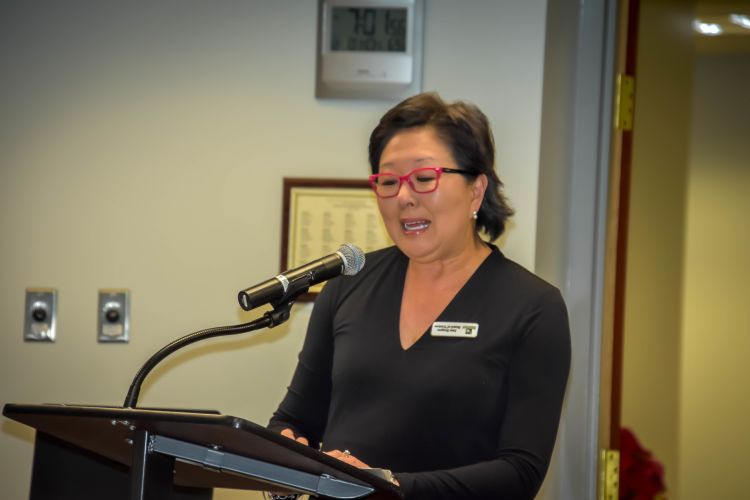
Board President Jane Burgess recognizes retiring board members
Board President Jane Burgess recognizes retiring board members
School calendar options for the three school years spanning 2020-2023, and the results of a community survey about them, were presented and discussed before Board consideration.
Dr. Robison explained why two scenarios were eliminated prior to the survey. A balanced calendar was not presented for consideration because of costs associated with July and August days in school—and because of the repeated failure of a truly balanced calendar so many times when surveyed in prior years. Robison shared that the recommendation and ratification of a year-round calendar would be such a long shot on the additional cost rationale alone, that an implausible outcome of an 80-90% mandate for such a configuration took it out of contention for a survey spot. A year-round/balanced calendar also does not allow for the first semester to be completed prior to winter break which has proven to cause elevated stress in students, and Robison reported that this factor drove the August start date, as it has for many years in ZCS.
There was also discussion about parent feedback regarding a calendar that does not have school starting until after Labor Day. There were inquiries about why such a calendar was not surveyed either. Robison reported that he developed such a calendar to stress test it against the caveats that have driven our calendar making in ZCS for quite some time. Robison reported that the calendar looked good to not drive worry about semester end testing hanging over students’ heads at the winter break (the first semester would be pushed several weeks after return from winter break, thereby greatly mitigating the final exam stress). However, Robison reported that the issue resulting from the first semester’s late finish is the lost days of instruction in semester two prior to the College Board’s national Advance Placement (AP) testing window in early May. Losing 10-12% of instructional days before the majority of HS cohorts sit for the AP exams was a bridge too far. ZCS parents save in excess of $1.1M per graduating class because AP course exam success yields college credit. The protection of AP instructional days has become a huge rock in calendar development in ZCS.
Robison settled on three calendar options and sent them to the school community for input. The survey ran for one week and there were just shy of 5,000 responses comprised of input from staff members, families, and students in grades 5-10 (11th and 12th graders will not be here for the calendar years to which the survey applied). Of the nearly 5,000 responses, nearly 3,000 were parents, 2,000 were students and 65 percent of ZCS employees responded as well.
Calendar options A and B had similar favorable survey outcomes, while Calendar Option C gained little traction and was easily removed from possible recommendation to the Board.
Calendar A had a 36 percent preference while Calendar B had a 41.4 percent favorability. The only significant difference between Calendar A and Calendar B is a weeklong break in February. The board discussed the benefits of a February break as well as potential community concerns that could arise regarding a break in the month of February. Superintendent Robison reported that adding a February break allows for more experiential learning outside the walls of ZCS. This opens up the possibility for study travel, internships and learning opportunities outside of the classroom. But Robison quickly added that there were many survey comments of concern about childcare options for working parents whenever there are multiple school breaks. He shared that aiding working parents in their need for child care during school breaks in fall, spring, and summer were already strong aspects of ZCS programming. Adding a winter week with options for child care and optional school programming is very doable, he asserted.
Robison echoed others comments that the winter break could bring benefits in addition to the added educational opportunities. Mentioning better school pacing, interruption of school-based germ sharing with more frequent breaks (shown in other settings to lead to better teacher and student attendance), and stress reduction due to seasonal affective disorder during long, gray Indiana winters, Dr. Robison emphasized that the school district will provide educational and child care options for families in need of these services, just as they are in need in summer—from whence the week now placed in February came.
The board discussed the calendars. Board President Jane Burgess offered that with the only difference between Calendars A & B being the February break, she is excited to think about the possibilities for internships, international travel and new experiences for students. Board Member Shari Richey agreed and added that experiential education and real-world experience is a great opportunity for students. Board Member Joe Stein said that with both options having a high level of support, and knowing there will be opportunities for families of younger students who need child care, he was also in favor of a calendar vote. The Board approved Calendar B with a week break in February beginning in the 2020-2021 school year. Robison indicated that the template adopted would be replicated for the 2021-2022 and 2022-2023 school years.
*See the approved 2020-2021 school calendar below.
During Superintendent’s Reports, Chief Academic Officer Kris Devereaux provided an annual report required by law on the finalization of the teacher evaluation cycle for the 2017-2018 school year. She said the only difference in the structure of the report this year is that schools in Indiana receive two letter grades now, state and federal.
Ms. Devereaux said ZCS is a leading exemplar in Indiana for teacher evaluation process and has received special recognition by the Indiana State Board of Education for excellence in implementation. Teachers are evaluated annually by supervising principals and assistant principals through use of a rubric.
“This year, through the incredible work of teachers, administrator feedback and guidance, professional development opportunities, and being the first year we have been able to foster our Plus models where teachers were able to observe colleagues who excelled in an area that they themselves wanted to grow, almost 70 percent of our teachers were highly effective and 30 percent effective,” said Mrs. Devereaux.
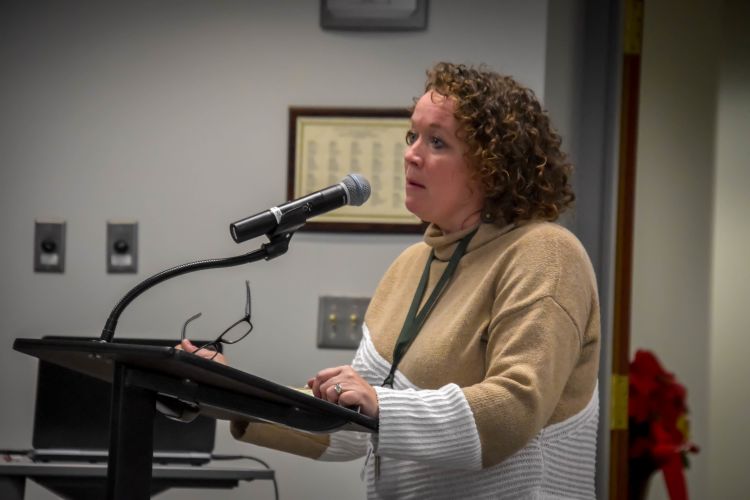
Chief Academic Officer Kris Devereaux presents to the Board
Chief Academic Officer Kris Devereaux presents to the Board
The next regular monthly board meeting will be held on January 14, 2019 in the ZCS Educational Service Center.
